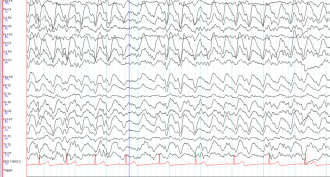MS-LS1-8
Gather and synthesize information that sensory receptors respond to stimuli by sending messages to the brain for immediate behavior or storage as memories.
-
 Animals
AnimalsAnimals can do ‘almost math’
Humans aren’t the only animals with a number sense. Scientists are trying to figure out where and when it evolved.
By Susan Milius -
 Brain
BrainTo reveal how the brain creates joy, start by tickling rats
Rats love a good tickle. Not only do they beg for more, but the action itself activates a part of the brain that detects touch, researchers find.
-
 Psychology
PsychologyWhat makes a pretty face?
Beautiful faces are symmetrical and average. Do we prefer them because this makes them easier for our brains to process?
-
 Health & Medicine
Health & MedicineSimpler way to screen for hidden hearing loss?
Many teens today walk around with undiagnosed hearing damage. But some Boston-based researchers have come up with a low-tech approach to screening these individuals so they can get help.
By Lela Nargi -
 Health & Medicine
Health & Medicine‘Ringing’ in the ears may signal serious ear damage
A persistent ringing in the ears, also known as tinnitus, has become common in teens — and may point to eventual, permanent hearing loss.
By Lela Nargi -
 Fossils
FossilsDino brain found ‘pickled’ in boggy swamp
Scientists claim to have identified the first fossil brain tissue from a dinosaur.
By Meghan Rosen -
 Brain
BrainPain is contagious — at least in mice
Pain can move from one mouse to another. The trigger may be smell.
-
 Brain
BrainThese scientists are getting inside your head
You brain might only weigh few pounds, but there’s a whole world in there. Meet the women in science who are digging into the mysteries of the mind.
-
 Brain
BrainCool Jobs: Video game creators
Meet an engineer who worked on StarCraft II, an expert building a new kind of reality and a neuroscientist who uses games as brain therapy.
-
 Brain
BrainGood dog! Canine brains separate tone of speech from its meaning
Dogs brains divide up the tasks of interpreting words and interpreting emotion. It’s a skill that may have evolved even before people did.
-
 Tech
TechOne day, computers may decode your dreams
Scientists are learning how to translate brain activity into words and thoughts. This may one day allow people to control devices with their minds.
-
 Brain
BrainExplainer: How to read brain activity
Electricity underlies the chattering of brain cells. Here’s how scientists eavesdrop on those conversations.